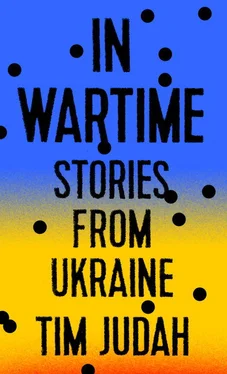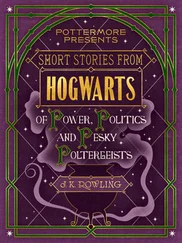A month later I asked Artyom what he had been doing. The answer was that he had been exploring the possibility of moving to Kiev or the west or emigrating. “If I come back in a year,” I asked, “what do you reckon the chances of you still being here are?” Without hesitation he answered: “Fifty-fifty.” A year later they had fled to Dnipropetrovsk, another big eastern industrial city, but one which remained firmly in Ukrainian hands.
As a politically active couple, Olena and Artyom were on one of Donetsk’s local election commissions. This meant they were supposed to help organize and supervise the May 25 presidential election in one central Donetsk district. Artyom was the secretary of his commission and, as the election approached, he began calling its members and found half were refusing to take part because it was too dangerous. The leadership of the DNR had declared that no election could take place there because it was no longer part of Ukraine. Thugs began barging into offices involved in organizing the poll and closing them down. The parties appointed new people to replace those who refused to work, but this did not help because the new people also did not want to come. As the situation deteriorated, Artyom and his colleagues decided to carry on in secret and determined that, come what may, it was important to open their polling station so that it could be registered as having opened, even if only a handful of people actually dared to vote. With checkpoints surrounding the city it was impossible to drive the ballots in, so just before the poll they were flown into the airport, which a few days later was to close, as fighting erupted around it. As the vehicle with the ballots drove from the airport, however, it was stopped by rebels and the man in charge was kidnapped and held for a few days. Thus, the election in the city, and indeed in the rest of the rebel-held territory, could not take place.
At about the same time, Olena and Artyom needed to get a new marriage certificate. They wanted to send their younger son, then aged eleven, to a summer camp in Israel and to stay with relatives there. As they had married just before the end of the Soviet Union, their original marriage certificate was a Soviet one but a Ukrainian version was a required part of the paperwork. By now the office which issued the documents had been taken over by the rebels. Eventually they did manage to get the paperwork together. Meanwhile, they wondered what to do. All of their lives were in Donetsk, but now they could see the power of the Ukrainian police, the security services and the legal authorities evaporating. As business dried up, Artyom moved his stock into a secure warehouse and began to close his shops. His ten staff accused him of treachery, but he said, “I did not want to pay tax to the DNR and so I decided not to.” In summer they closed their office, and Olena’s brother Anton left with his children for Kharkiv. The situation in the city was getting worse, as certain areas, especially but not only near the airport, were being shelled. The Ukrainians in the airport tried to hit the rebels who in turn were attempting to dislodge them.
Anton sought a way to extract his valuable printing machines from the city, but tragedy struck. His father-in-law was a miner in Makiivka, the neighboring town to Donetsk. Because of the war, his mine closed and he fell into a deep depression. He was taken to the hospital for an assessment, and there committed suicide by jumping out of the window from a high floor. Then, when Anton was at home in Donetsk, a young man smashed his car into Anton’s parked one. He came downstairs and the man apologized and said he would give him some money—it was better not to get the police involved, he said—but that as he did not have it on him, Anton should come with him to get it. He got in the man’s car, and as soon as they left another car arrived and Anton was kidnapped. He had been set up. The kidnappers were Chechens whom the family believe were Kadyrovtsy , which is to say armed men sent by Ramzan Kadyrov, the Chechen leader, to fight for the rebels. It rapidly became clear that they had been tipped off that, as Anton was trying to get his printing presses out, he must have enough money to do so. Anton’s wife used her contacts and managed to get her husband freed after a few days without paying a ransom. The presses were extracted from Donetsk and sent across the front line on the payment of a $1,000 bribe to a DNR official. Anton had been roughed up but not badly beaten. When he was released, one of the kidnappers took his shoes.
At the beginning of July, Olena and Artyom were in Kiev. They had gone to collect their son, who had just come home from Israel. Simon, their older son, aged nineteen, stayed with his grandparents in Donetsk because he had a university exam to take. At exactly this moment Sloviansk, which had been under rebel control since April, fell to Ukrainian forces. A column of armed rebels evacuated the town and retreated to Donetsk. As that happened, Olena and Artyom were on the train on the way back from Kiev and Simon’s grandmother called them to warn them that the city was full of armed men, that it was dangerous and they should not come home. So, they got off in Dnipropetrovsk, because the grandmother had a distant relative there whom she phoned and asked to look after them. They arrived at his apartment at two o’clock in the morning and found he had been celebrating his birthday, and there were dishes of party food still on the table. They stayed with him a few days and then he sent them to his dacha, or country house, about thirty kilometers away.
Olena said she decided to treat these days as a kind of summer holiday, but it was hard there because, until Anton brought them their car from Donetsk, it was difficult to move about and even the nearest shop was thirty minutes’ walk away. Originally they also had only the clothes they had taken to Kiev. By August it was clear they were not going home. They began looking for an apartment to rent in Dnipropetrovsk. Simon applied to transfer to the city’s university and they got their younger son into a good school. Meanwhile, all of their family and all of their friends were pouring out of Donetsk and going to Kiev. After the fall of Sloviansk, Russia sent troops to stem the Ukrainian advance, which they did, but Olena and Artyom met people who were amazed they had decided to stay in Dnipropetrovsk. Artyom recalled: “Everyone was waiting for Russian troops here. It did not mean they wanted that, but they expected it. They said: ‘Why did you come here? They will come here too.’”
Olena managed to get some of her paintings out of Donetsk but said she did not regret the rest. “They are from a different stage of my life, when I had different goals.”
In the meantime their home in Donetsk is empty. They asked a neighbor to keep an eye on it, but then she left. They were living on savings, but Artyom had up to $100,000 worth of Cozy Home stock stuck in the warehouse in Donetsk. Life was in limbo. They have family in Germany and there was a possibility that they could go there, so Olena and Artyom were spending much of their time studying German. They said that being part of a small, liberal and opposition-minded circle in Donetsk, they were already increasingly unhappy before the war but now, said Artyom, one thing was for sure: “We will never go back to Donetsk.”
Whatever happens, the fate of the city and the region without such creative people, without modern-minded pro-Europeans and entrepreneurs, will be all the poorer. Some even say that in this way Donetsk is reverting to type. It is becoming again what it originally was: a small, rough-and-ready and violent place.
The little town of Sloviansk was under rebel control from April 12 to July 5, 2014. In that period it became their bastion, and effective control was wielded by Igor Girkin, who used the nom de guerre Strelkov, or “Shooter.” By his own admission he was a former Russian intelligence agent. To what extent he was an active asset of Russia’s security services was, and is, much debated. Given his statements, though, it was clear that he was a true believer in the cause of re-creating an imperial Russia. By contrast, and by her own admission, Viktoria Demidchenko, who was twenty-seven when he took over, didn’t much care who ran the town, but just wanted a better life. Between pro-Ukrainians who had either fled or were keeping very quiet, vocal pro-Russians or those opposed to the post-Maidan government but not necessarily anti-Ukrainian, Viktoria was typical of many, especially in that first part of the war, when loyalties were ambiguous and had not crystallized into hate.
Читать дальше












